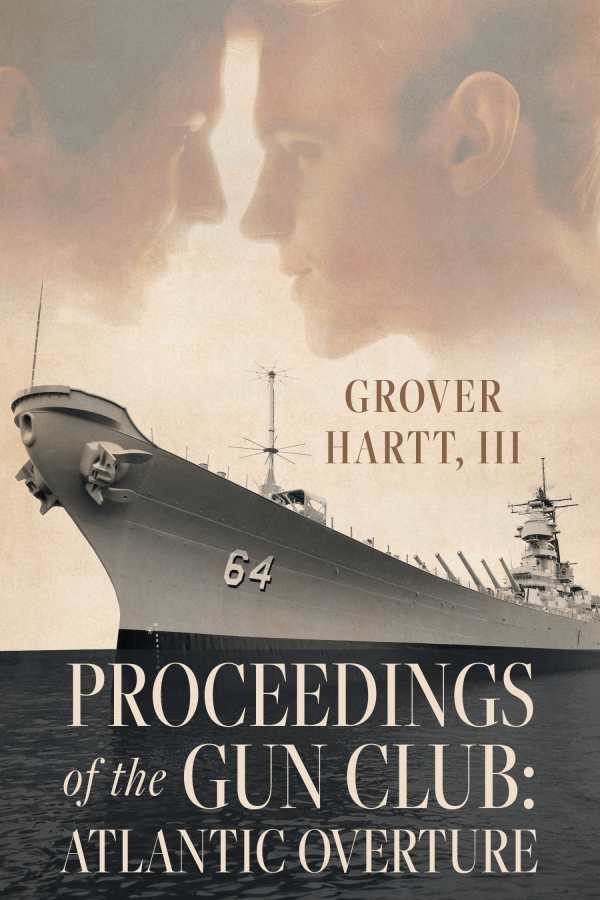Atlantic Overture
Proceedings of the Gun Club
A gay man in the United States Navy navigates era prejudices to fulfill his sense of duty in the harrowing historical novel Atlantic Overture.
In Grover Hartt III’s historical novel Atlantic Overture, a radar prodigy’s military service coincides with the Second World War.
By 1941, the US is allocating resources toward the war it still hopes to avoid. Scott, a naval officer, is tasked with demonstrating to representatives of the US Senate the value of investing in battleships equipped with the latest radar technology. Brilliant and passionate about advancements in radar, Scott gives the senators a crash course in naval gunnery. Battleships equipped with radar are better able to identify enemy vessels and hit targets with greater accuracy.
Scott wants to fulfill his duty with honor, but as a gay man in the navy, he has to navigate additional roadblocks. He follows a strict rule of discretion and keeps his private life separate from his military service. In his free time, he indulges in his passions. His friend and mentor, Jack, throws Gatsbyesque parties for the gay men of Washington, DC. Scott finds refuge at these soirees until the Pearl Harbor attack. Once America enters the war, he is anxious to prove his worth on a battleship.
Themes of military equality decades before the “Don’t Ask, Don’t Tell” era are at the novel’s fore. Scott is a window into the prejudices and discrimination that gay servicemen experienced, and his actions are a testimonial to how wrong related stereotypes are: He acts with courage to save the lives of his fellow sailors during the war. Further, Scott’s emotions are complex and authentic. While he is in the company of pretentious politicians, his candor is refreshing, and he is angered by the political grandstanding that delays America’s entrance to the war. He rises above “posturing and pontificating” to demonstrate how battleships equipped with advanced radar capabilities can empower the Allies to win the war. Intelligent, humble, courageous, and obedient, he is made a symbol of the ideals of the United States military.
But this portrait of Scott’s military service, which stands in contrast to era stereotypes about gay men, also clashes with the book’s secondary focus on his sexual experiences while not on duty. Still, his internal dualities result in some complexity. In contrast, Jack, his party companions, and dozens of military men are characterized most in terms of how they explore their sexuality decades before sexual liberation is the norm, resulting in shallowness when Scott is not the focus.
In the historical novel Atlantic Overture, the hearts of the men who navigate World War II battleships are explored in depth.
Reviewed by
Paige Soto
Disclosure: This article is not an endorsement, but a review. The publisher of this book provided free copies of the book and paid a small fee to have their book reviewed by a professional reviewer. Foreword Reviews and Clarion Reviews make no guarantee that the publisher will receive a positive review. Foreword Magazine, Inc. is disclosing this in accordance with the Federal Trade Commission’s 16 CFR, Part 255.

